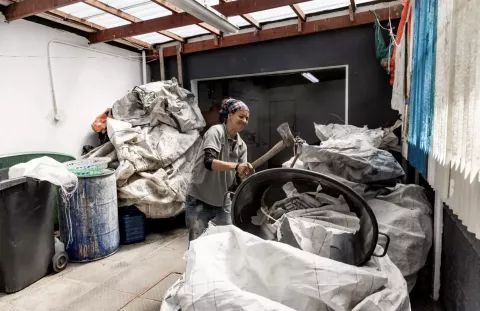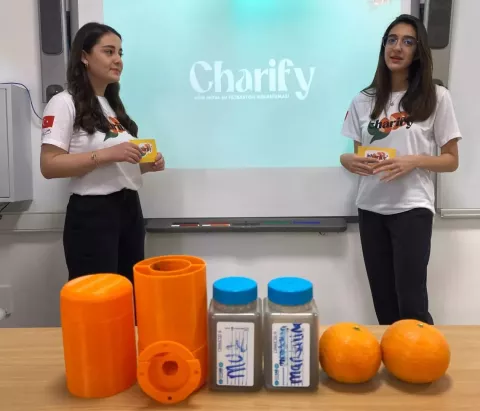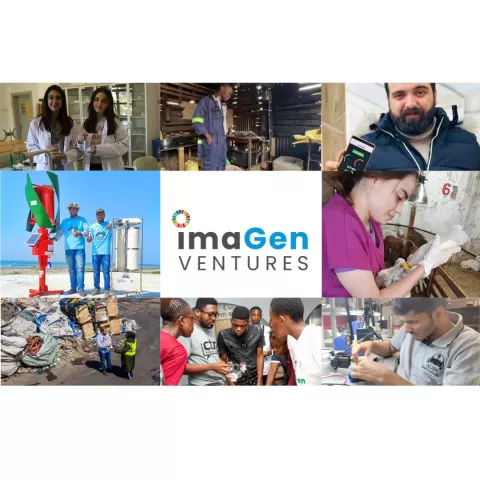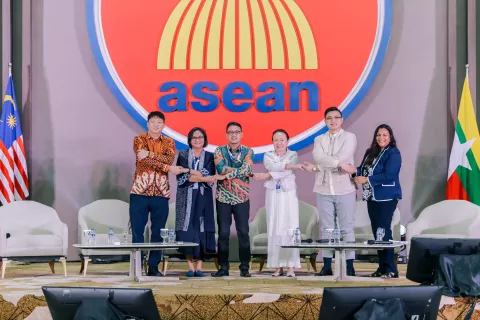In Pakistan, youth empower people with disabilities
Karachi-based startup Eye Interaction, whose founders are GenU Youth Challenge finalists in Pakistan, has developed technology that allows the user to control appliances with eye interaction
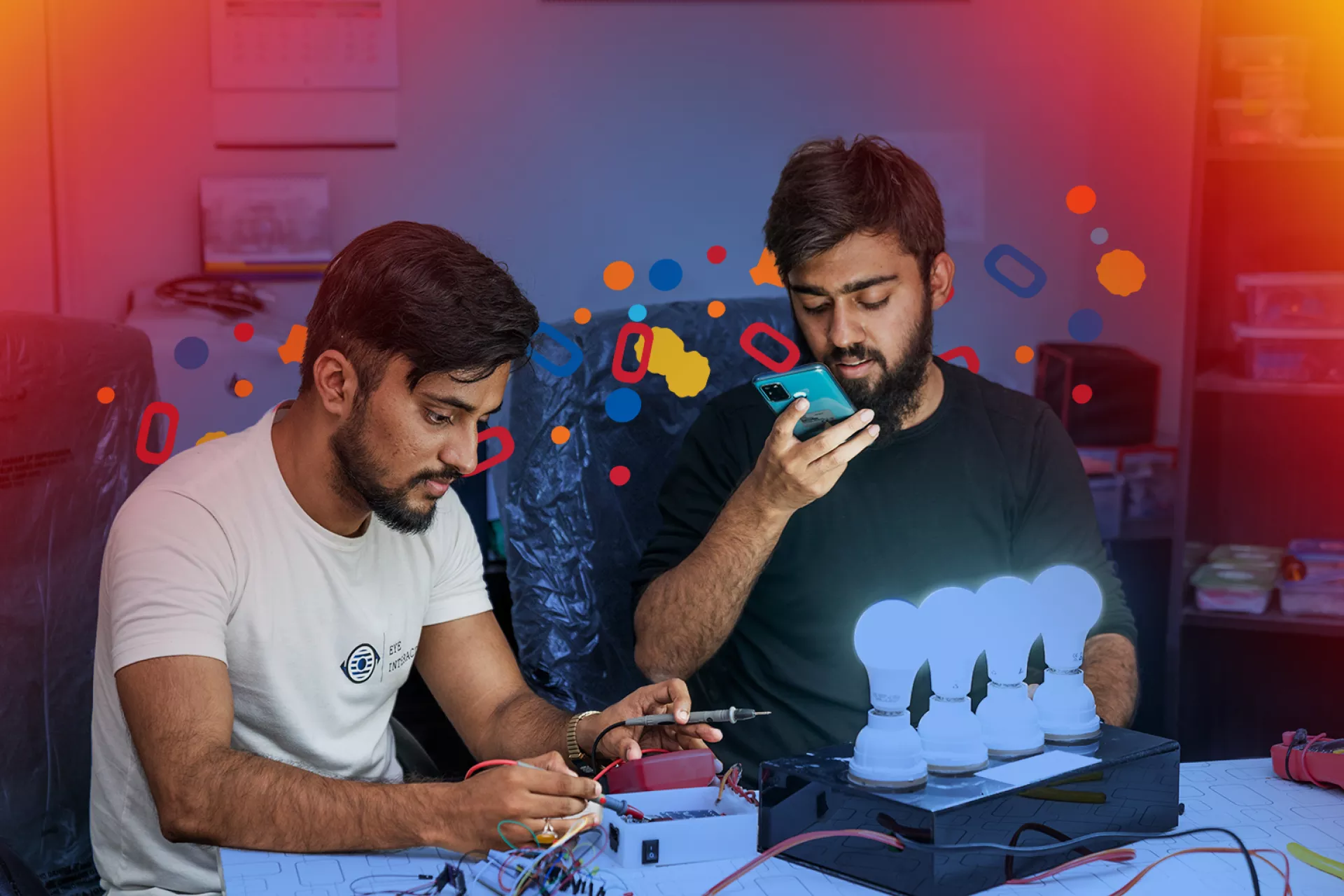
KARACHI, Pakistan, 22 March 2021 - “Do you know how many times a day you get up to go to the washroom or switch off the lights in your room?” asks 24-year-old Adeel Ahmed. “You probably don’t because it’s just something that you take for granted.
“Now imagine if something as simple as getting out of bed or moving inside your room was an uphill task for you. Then, you would remember for sure,” he adds.
Adeel, a computer sciences graduate, co-founded the start-up Eye Interaction together with his friends and university mates Irfan Ahmed and Hamza Ahmed. All of them are 24 years old and finalists of the Generation Unlimited Youth Challenge 2.0 in Pakistan. Their startup focuses on helping provide physically challenged persons with some mobility and use house appliances simply with eye movements and a mobile application.
“I grew up with a relative who is about my age and was wheelchair bound. I used to see him suffer from being different. He had difficulties doing everyday routine tasks and he hated being dependent on others,” Adeel tells. “After graduating from university, I decided to use my skills to do something that would help make his life easier and help people who have different abilities become independent.”
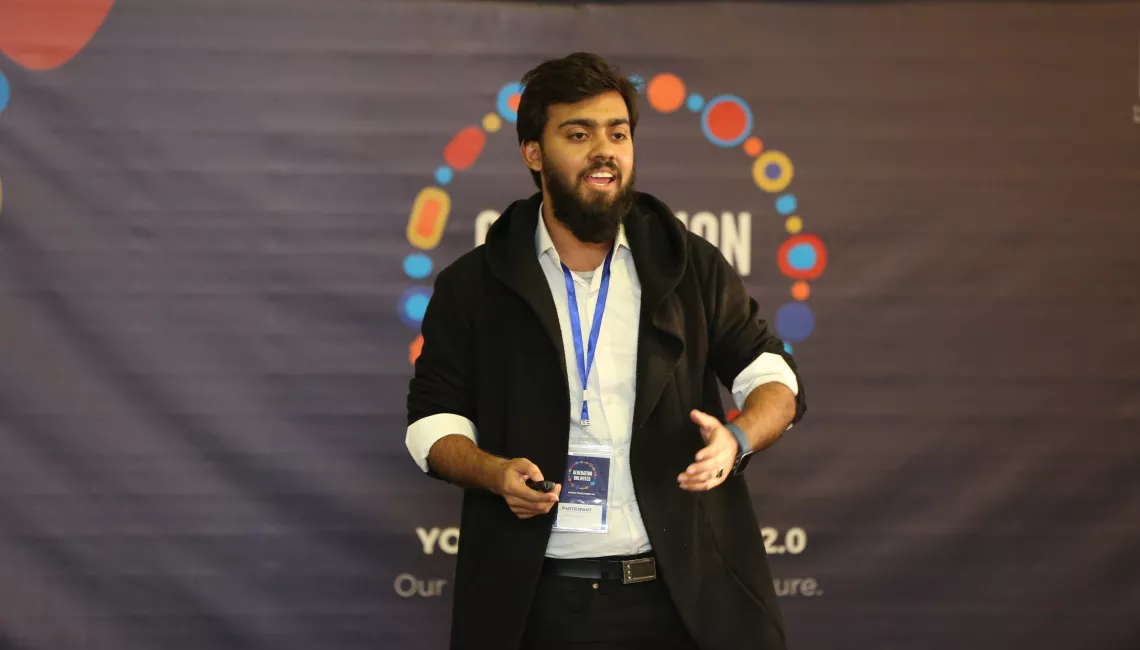
Eye Interaction’s journey began early 2020 when its three founders applied to the Generation Unlimited Youth Challenge 2.0 in Pakistan.
“We wanted to develop innovations to help physically challenged people do the tasks we take for granted such as turning the light or the fan on. They have every right to live a normal life free of discrimination and prejudice,” Adeel says.
His friend Irfan says that he learnt about the challenge online. After their project was pre-selected, the group flew to Islamabad to submit the final pitch presentation in front of a panel of judges.
“The night before the presentation, I rehearsed in my hotel room, trying to use the tips which GenU mentors had shared with us. It helped me make the pitch more effective and be selected.”
Irfan explained how the young innovators planned to attach a camera to a wheelchair to monitor the eye movements of the person sitting on it, and make it move accordingly. The wheelchair can also be operated through a mobile application developed by the startup, Techtronics Automation, now available on Google Play store.
The challenge, launched by UNICEF and UNDP, called on young innovators across the country to design solutions to improve education, employment and civic engagement. It was implemented with Pakistani NGO School of Leadership Foundation.
The youth challenge is part of Generation Unlimited, a multi-sector partnership to meet the urgent need for expanded education, training and employment opportunities for adolescents and young people aged 10 to 24. The partnership forges innovative collaborations with young people and supports them to become change-makers and co-creators of solutions that improve their lives and their communities.
After taking part in several design workshops over a two-month period and being selected as one of Pakistan’s winning five teams, Eye Interaction received USD $1,000 in seed funding to develop their idea.
After taking part in several design workshops over a two-month period and being selected as one of Pakistan’s winning five teams, Eye Interaction received USD $1,000 in seed funding to develop their idea.
The young innovators used the money to set up an office in a small flat in Karachi, where Adeel works as Research Analyst, Irfan develops IoT (Internet of Things) and robotics and Hamza is responsible for android development. This is where they started producing the customized wheelchair which they pitched to the GenU Challenge.
“Without GenU Challenge 2.0, Eye Interaction would not exist,” Irfan says.
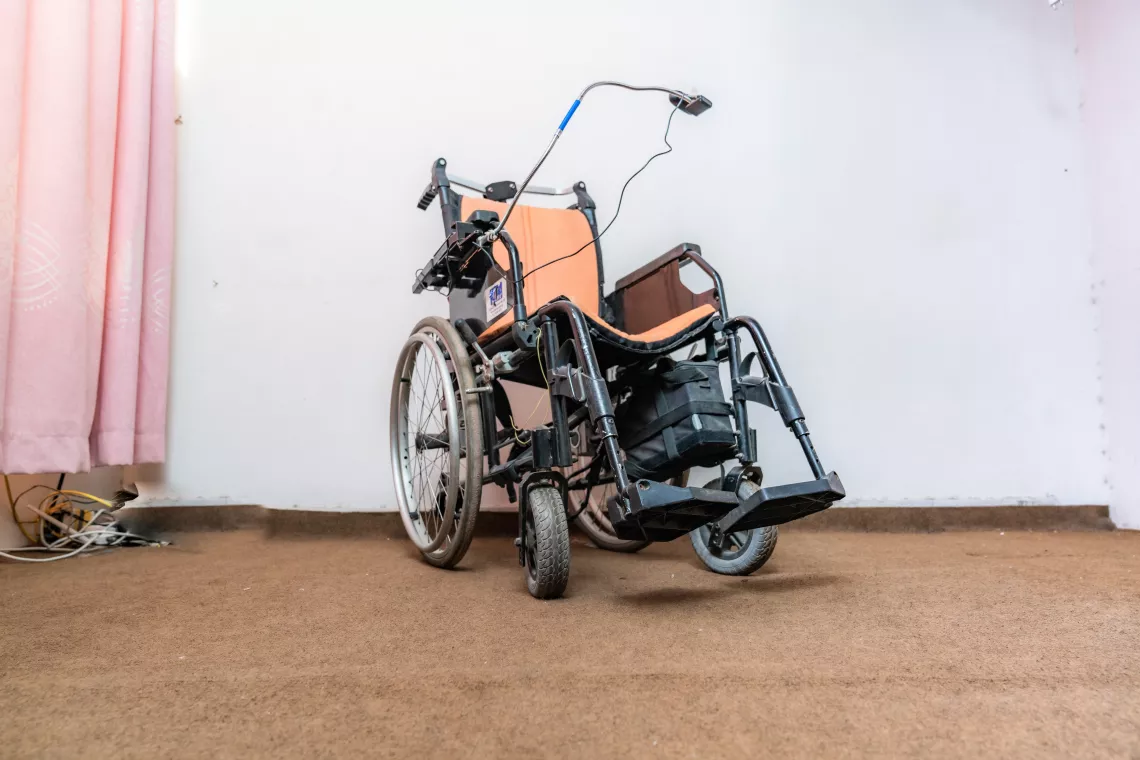
“We joined the Challenge with the idea of developing automated home appliances and gadgets for physically challenged people. We had not realized how difficult it would be to turn our idea into a reality until we spoke with experts during the GenU workshops. They provided us with guidance on Human-centred design as we led field research and analyzed every aspect of our project to find solutions. After we were selected as one of the top five teams, we received further support from experts mandated by GenU.”
As the young innovators prepared to build their first prototype, they faced a more unexpected challenge – the COVID-19 pandemic.
In a bid to reduce virus transmission, authorities in Pakistan’s Sindh province imposed a lockdown in March 2020, right before the incubation phase of the project was to start. The young innovators found themselves stuck at home, unable to source the raw materials they needed.
Suddenly, everything was uncertain.
Making the best use of their time, the group remained in contact with their GenU mentors online., They focused on the tasks they could do at home, such as programming. Once the lockdown eased down, they procured the materials they needed and came up with a prototype of the wheelchair and a home automation system.
The group was also able to test its innovation with the support of physically challenged volunteers in Karachi.
"I used to use sticks and broom handles to switch the lights on and off in my room,” 23-year-old Osama Waseem, one of the volunteers, tells. It was an embarrassing sight. Moreover, I was moving around in a wheelchair which I had difficulties dragging around without someone's support.”
“When Eye Interaction's home automation system called me, I was amazed. Suddenly I was able to control the lights with the help of a mobile application. I also tested their customised electric wheelchair. I could not believe that I could operate it just using my eye movements and the mobile application. Since Eye Interaction installed the system at my home, my life has become much better. These innovations are a blessing for physically challenged people.”
The positive feedback encouraged Irfan and Adeel to postpone studying for a master's degree and focus on scaling up operations. Irfan’s parents were initially worried and wanted him to look for a job, but he managed to convince them that it was worth focusing on the startup. Adeel says that his parents have always been supportive and encouraged him to continue working on the project even as it came to a standstill during COVID-19 lockdowns. Hamza has now taken a more limited role due to personal commitments.
The young innovators plan to publish a research paper and are fundraising to open a research lab and production facility. It will manufacture customized wheelchairs and home automated appliances that operate lights and fans with eye movements and a mobile application. They are also conducting online sessions for students from all over the world.
“Adolescents and young people are the future of Pakistan,” Ghazala Farid, UNICEF Pakistan’s focal point for the GenU Challenge. “Initiatives like the youth challenge provide them with a much-needed platform to learn, grow and showcase their incredible skills.”
Eye Interaction participated in the second edition of the Generation Unlimited Youth Challenge 2.0 in 2020. In 2019, The Red Code, a team of girls from Pakistan, was among global winners and received USD $20,000 in seed funding to run awareness-raising workshops on menstrual hygiene and provide women with reusable, cloth pads stitched by home-based workers to support self-sustaining micro-entrepreneurship.
“Pakistan’s young people are a major resource for social and economic progress,” said Aida Girma, UNICEF Representative in Pakistan. “The Youth Challenge is an opportunity to discover their innovative ideas and work with them to co-create solutions for the world of tomorrow. This is at the core of Generation Unlimited, a multisectoral, global partnership which helps prepare young people for a future of decent work and active citizenship."
The Generation Unlimited Youth Challenge is designed to inspire young people with brilliant ideas but without the resources to bring them to life. Adolescents and young people from 16 countries participated in the first edition in 2018.

